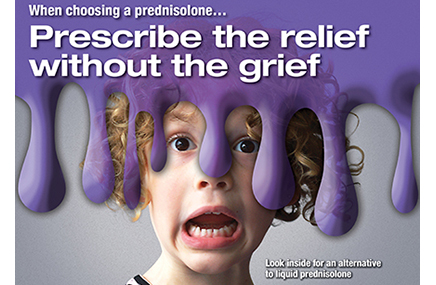Natrel Communciations founding partners Allan Trent and David Nakamura deserve credit for consistency. Over the last half-decade, they’ve looked past the conventional wisdom currently in vogue (“digital is going to be huge!”), to reiterate their commitment to the specialty space.
Natrel’s focus has paid off with an expanding client base and increases in revenue (up to $12 million in 2012). “We’re stable,” Trent says, almost apologetically. “Sometimes you have to look in the mirror and see what you’re all about. Well, when we started, we decided to concentrate on specialty products—drug delivery systems, niche therapeutic areas, orphan products. That’s what we see when we look in the mirror today.”
Thus Natrel’s last year was much like the ones that preceded it: a gaggle of new clients, the departure of one or two others and few of the frustrations felt by companies perpetually chasing “the next big thing.” It kept its full-time staff count around 50 for the third year running, though its freelancer corps bumps that figure into the mid-60s.
As opposed to many other firms, Natrel doesn’t have strong feelings one way or the other about the use of freelancers. Nonetheless, the firm upped its reliance on them during the last year due to a handful of issues.
“We have several brands at the FDA waiting for approval and some delay issues at manufacturing plants,” Nakamura reports. “Nothing looks insurmountable, because we’re not dealing with problems of safety or efficacy, but we haven’t hired as many full-time staff as we might’ve.” Adds Trent: “We don’t want to layer on overhead if there’s even a small chance we’d have to scale back later.”
Two accounts left in the past year: Meda Pharmaceuticals’ cold-sore treatment Xerese and Shionogi’s pain medication Naprelan. But those departures were more than counterbalanced by organic growth from longtime clients CSL Behring (for its coagulation franchise) and Terumo Medical Products (for its SurFlash catheters and its Surshield winged infusion sets). Impax Pharmaceuticals tapped Natrel for work on its migraine drug Zomig and Depomed did the same for Sefelsa, a drug to ease the intensity of hot flashes.
That last win, however, led to what Trent calls “the year’s biggest disappointment.” In March, the FDA gave Depomed a thumbs-down verdict on Sefelsa, concluding more or less that the product didn’t work as intended. “We were an underdog going in to that pitch and we won it against the odds,” Trent recalls. “Then we lost a vote with the FDA. That was going to represent a lot of income for us.”
At the same time, that Depomed pitch affirmed to Trent and Nakamura that Natrel was on the right path. They attribute the win to a host of new hires in the account and creative services departments, as well as to the tireless work of SVP, director of client services Nicole Hyland. “She’s homegrown,” Trent says proudly.
Trent and Nakamura don’t expect a whole lot of changes: Natrel will still play in the same specialty spaces. “You never really have a strategy in place, because people come and go and client budgets change,” Trent says. “But we have a strategy in place. It works for us.”
From the July 01, 2013 Issue of MM+M - Medical Marketing and Media








